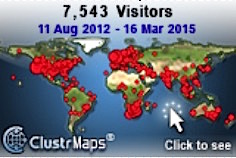Every two weeks the respected South African weekly newspaper Grocott’s Mail publishes a poetry column that I write. It is called Poetic Licence. Here is the latest:
Last weekend I listened to some truly outstanding people who are making a real difference. For this they rightly received Honorary Doctorates from Rhodes University.
It’s easy to forget, when the news is filled with stories of corruption, scandal, greed and crime that the world also contains individuals of exceptional talent and integrity.
Part of this week’s ghastly news was of renewed attacks upon local rhino. Two white rhinos were found dead and mutilated for their horns at Sibuya Game Reserve and another, which had been viciously disfigured and blinded, died shortly afterwards.
Then, near the Great Fish River, two black rhinos (only 5000 of which still exist) were found slaughtered – a mother and her calf. A third was gravely injured.
This is serious. Such gratuitous horror shames us all. We are overseeing the literal destruction of our world. And too many otherwise good people shrug, utter a platitude or two and assume there’s nothing to be done.
But the lesson of those receiving awards last week is that we can do something – indeed, that we must. Whether in promoting human rights or education, advancing social justice, aiding places devastated by war and natural disasters, or helping to preserve the natural world, if we do nothing we are complicit in our own ultimate ruin.
Three years ago, following the repulsive slaughter of rhinos at Kariega Game Reserve, the anthology For Rhino in a Shrinking World was published. Little enough, perhaps, but something to raise awareness and to support the heroic efforts of those on the front line of the fight to save these iconic creatures.
This poem – actually a song by American singer-songwriter David Mallett – was included. It’s about the importance of wild things everywhere and our relationship with them.
You Say That the Battle Is Over
You say that the battle is over
You say that the war is all done
Well go tell it to those with the wind in their nose
Who run from the sound of a gun.
And write it on the sides of the great whaling ships
Or on the ice flows where conscience is tossed
With the wild in their eyes
It is they who must die
And it’s we who must measure the loss.
You say that the battle is over
And finally the world is at peace
You mean no one is dying and mothers don’t weep
Or it’s not in the papers at least.
There are those who would deal in the dark side of life
There are those who would tear down the sun
And most men are ruthless but some men will weep
When the gifts we are given are gone.
Now the blame cannot fall on the heads of a few
It’s become such a part of the race
It’s eternally tragic that that which is magic
Be killed at the end of the glorious chase.
From young seals to great whales,
From waters to wood,
They will fall just like leaves in the wind.
But we’ve fur coats and perfumes and trophies on walls
What a hell of race to call men.
You say that the battle is over
You say that the war is all done
Well go tell it to those with the wind in their nose
Who run from the sound of a gun.
And write it on the sides of the great whaling ships
Or on the ice flows where conscience is tossed
With the wild in their eyes
It is they who must die
And it’s we who must measure the loss.
With the wild in their eyes
It is they who must die
And it’s we who must measure the loss.
(Music and words by David Mallet: Cherry Lane Music Pub. Co. Inc)



